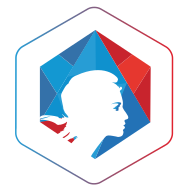OpenID Connect¶
Authentication |
Users |
Password |
|---|---|---|
✔ |
✔ |
Presentation¶
Note
OpenID Connect is a protocol based on REST, OAuth 2.0 and JOSE stacks. It is described here: http://openid.net/connect/.
LL::NG can act as an OpenID Connect Relying Party (RP) towards multiple OpenID Connect Providers (OP). It will get the user identity through an ID Token, and grab user attributes through UserInfo endpoint.
As an RP, LL::NG supports a lot of OpenID Connect features:
Authorization Code flow
Automatic download of JWKS
JWT signature verification
Access Token Hash verification
ID Token validation
Get UserInfo as JSON or as JWT
Logout on EndSession end point
You can use this authentication module to link your LL::NG server to any OpenID Connect Provider. Here are some examples, with their specific documentation:
France Connect |
Pro Santé Connect |
|
|---|---|---|
Attention
OpenID Connect specification is not finished for logout propagation. So logout initiated by relaying-party will be forward to OpenID Connect provider but logout initiated by the provider (or another RP) will not be propagated. LLNG will implement this when spec will be published.
Configuration¶
OpenID Connect Service¶
See OpenID Connect service configuration chapter.
Authentication and UserDB¶
In General Parameters > Authentication modules, set:
Authentication module: OpenID Connect
Users module: OpenID Connect
Tip
As passwords will not be managed by LL::NG, you can disable menu password module.
Attention
Browser implementations of formAction directive are inconsistent (e.g. Firefox doesn’t block the redirects whereas Chrome does). Administrators may have to modify formAction value with wildcard likes *.
In Manager, go in :
General Parameters > Advanced Parameters > Security >
Content Security Policy > Form destination
Then in General Parameters > Authentication modules >
OpenID Connect parameters, you can set:
Authentication level: level of authentication to associate to this module
Callback GET parameter: name of GET parameter used to intercept callback (default: openidconnectcallback)
State session timeout: duration of a state session (used to keep state information between authentication request and authentication response) in seconds (default: 600)
Register LL::NG to an OpenID Connect Provider¶
To register LL::NG, you will need to give some information like application name or logo.
You will be asked to provide a Redirect URI for LemonLDAP::NG, which is constructed by appending the openidconnectcallback=1 parameter to the Portal URL.
For example:
Attention
If you use the choice backend, you need to set SameSite cookie value to “Lax” or “None”. See SSO cookie parameters
After registration, the OP must give you a client ID and a client secret, that will be used to configure the OP in LL::NG.
Declare the OpenID Connect Provider in LL::NG¶
In the Manager, select node OpenID Connect Providers and click on
Add OpenID Connect Provider. Give a technical name (no spaces, no
special characters), like “sample-op”;
You can then access to the configuration of this OP.
Metadata¶
The OP should publish its metadata in a JSON file (see for example Google metadata). Copy the content of this file in the textarea. Portal discovery document can be found here: https://#portal#/.well-known/openid-configuration
If no metadata is available, you need to write them in the textarea. Mandatory fields are:
issuer
authorization_endpoint
token_endpoint
userinfo_endpoint
You can also define:
jwks_uri
endsession_endpoint
Example template:
{
"issuer": "https://auth.example.com/",
"authorization_endpoint": "https://auth.example.com/oauth2/authorize",
"token_endpoint": "https://auth.example.com/oauth2/token",
"userinfo_endpoint": "https://auth.example.com/oauth2/userinfo",
"end_session_endpoint":"https://auth.example.com/oauth2/logout"
}
JWKS data¶
JWKS is a JSON file containing public keys. LL::NG can grab them automatically if jwks_uri is defined in metadata. Else you can paste the content of the JSON file in the textarea.
Tip
If the OpenID Connect provider only uses symmetric encryption, JWKS data is not useful.
Exported attributes¶
Define here the mapping between the LL::NG session content and the fields provided in UserInfo response. The fields are defined in OpenID Connect standard, and depends on the scope requested by LL::NG (see options in next chapter).
So you can define for example:
cn => name
sn => family_name
mail => email
uid => sub
Options¶
Configuration:
Configuration endpoint: URL of OP configuration endpoint
JWKS data timeout: After this time, LL::NG will do a request to get a fresh version of JWKS data. Set to 0 to disable it.
Client ID: Client ID given by OP
Client secret: Client secret given by OP
Store ID token: Allows one to store the ID token (JWT) inside user session. Do not enable it unless you need to replay this token on an application, or if you need the id_token_hint parameter when using logout.
Protocol:
Scope: Value of scope parameter (example: openid profile). The
openidscope is mandatory.Display: Value of display parameter (example: page)
Prompt: Value of prompt parameter (example: consent)
Max age: Value of max_age parameter (example: 3600)
UI locales: Value of ui_locales parameter (example: en-GB en fr-FR fr)
ACR values: Value acr_values parameters (example: loa-1)
Token endpoint authentication method: Choice between
client_secret_postandclient_secret_basicCheck JWT signature: Set to 0 to disable JWT signature checking
ID Token max age: If defined, LL::NG will check the date of ID token and refuse it if it is too old
Use Nonce: If enabled, a nonce will be sent, and verified from the ID Token
Display:
Display name: Name of the application
Logo: Logo of the application
Order: Number to sort buttons


